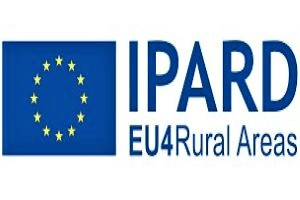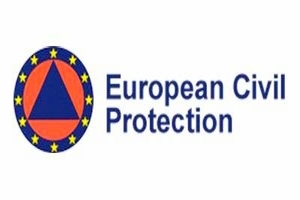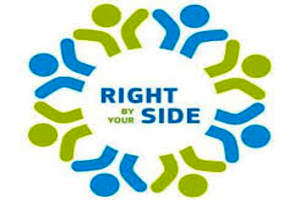Union Programmes aimed at strengthening cooperation between EU Member States and candidate countries in different areas. EU Programmes are financed from the EU budget, with funds intended for different priority areas: environmental protection, energy, transport, education, entrepreneurship, competitiveness, culture, etc.
For participation in each individual Programme, it is necessary to sign an international agreement between the Serbia and the European Commission and pay financial contributions to the general EU budget. Serbia has signed the Framework Agreement on participation in EU Programmes on 22 November 2004.
The EC has centralized the management of EU Programmes (except for the Erasmus+), thus a specific DG or Executive Agency is responsible for each programme, while co-ordination of participation in each individual Union Programme, is entrusted to National Contact Points in Serbia from the national ministries, associations, organizations, or offices.
This page provides you unique information about all 13 EU Programmes currently available in Serbia, together with details about each Programme, its projects, application in Serbia, funding and tenders options, what is supported, who can apply and under which financial terms, together with useful links.
Presentation material about EU programmes - Overview
Read more about EU Programmes available in Serbia here and here
Programs
Although IPARD does not belong to EU programmes, as all the programs mentioned below, it is important to emphasize the EU assistance to Serbia in its endeavour to align with agriculture as one of the most important EU polices. Agriculture in Serbia has received more than EUR 150 million from 2007 until 2014. since 2007.
For the period 2014-2020 IPARD…
Find out more
Horizon Europe is the EU’s research and innovation framework programme running from 2021-2027. It rests on three pillars:
1. "Excellent Science" supports pioneering research projects defined and initiated by researchers themselves through the European Research Council (ERC). It finances scholarships and exchanges of researchers through the activities of Marie Skłodowska-Curie and investments in the development of research infrastructure.
2. "Global…
Find out more
The EU's Erasmus programme is celebrating its 30 years. For three decades, this flagship programme for education and training, youth and sport has given 9 million people - in particular young people - opportunities to gain new experiences and broaden their horizons by going abroad. The current Erasmus+ programme, running from 2021 to 2027, has a budget of €26 billion…
Find out more
The Connecting Europe Facility (CEF) is a key EU funding instrument to promote growth, jobs and competitiveness through targeted infrastructure investment at European level. It supports the development of high performing, sustainable and efficiently interconnected trans-European networks in the fields of transport, energy and digital services. CEF investments fill the missing links in Europe's energy, transport and digital backbone.
The…
Find out more
Creative Europe is an EU Programme for support to the sectors for culture and media. The Programme consists of two sub-programmes: Culture - for promoting the sector of culture and the Media Programme - to support the audiovisual sector. Creative Europe, with a budget of EUR 1.46 billion supports Europe's cultural and creative sectors providing funding for 2,500 artists and cultural professionals,…
Find out more
Customs 2021-2027 is a programme that supports the cooperation of customs authorities between EU Member States and candidate countries. The aim is to improve their efficiency by achieving better cohesion, in order to avoid damaging the Customs Union. It enables national customs administrations to create and exchange information and expertise. It allows joint developing and operating major trans-European IT systems…
Find out more
The Employment and Social Innovation (EaSI) programme is a financing instrument at EU level to promote a high level of quality and sustainable employment, guaranteeing adequate and decent social protection, combating social exclusion and poverty and improving working conditions.
Structure and funding
EaSI is managed directly by the European Commission. It brings together three EU programmes managed separately between 2007…
Find out more
The aim of the EU's activities in the field of civil protection is to support the efforts to prevent disasters and ensure the readiness of civil protection units to act in the event of disasters - at the national, regional and local levels.
When the scale of an emergency overwhelms the response capabilities of a country, it can request assistance…
Find out more
Fiscalis 2021-2027 is a programme that deals with the exchange of information and experiences between tax authorities in European countries. The Programme's aim is to develop, in partnership with other European countries, a trans-European IT system and build person-to-person networks by bringing together national officials.The Programme supports the fight against tax fraud and tax evasion, tax policy planning and the…
Find out more
It promotes judicial cooperation in civil and criminal matters, helps train judges and other legal practitioners and facilitates effective access to justice for individuals and businesses throughout Europe. The programme also supports EU action to tackle drugs. The Justice programme has been put in place to ensure that Union law is fully and consistently applied.
The total budget allocated to…
Find out more
The protection of fundamental rights of citizens and their promotion, in accordance with the founding treaties of the European Union, the Charter of Human Rights and the International Convention on Human Rights to which the EU has acceded, are the objectives of the Rights, Equality and Citizenship program.
The objectives of the Program, which are significant for the Republic of…
Find out more
Civil Society Facility programme seek to ensure greater benefit of civil society from national legal and financial frameworks and to improve dialogue with state institutions. Programme support CSOs networks to give citizens a voice and influence public sector reform processes through analysis, monitoring and advocacy.
Thematic area of intervention through Calls for Proposals focused on:
strengthening the rule of law…
Find out more
Are you between 18 and 30 and looking for an opportunity to help the wider community, in Europe and beyond?
You could do this with funding and support from the European Solidarity Corps, which helps young people take part in projects that benefit communities, either abroad or in their own country.
These projects offer an inspiring and empowering experience, as…
Find out more
The EU Exchange 6 Programme is financed by the European Union in the scope of IPA 2019 national allocation, and is being implemented in the direct management regime, implying that the EU Delegation in Serbia entails principal management powers. The key competent line institutions at the national level are the Ministry of Finance and the Public Policy Secretariat, along with…
Find out more
IPA FLOODS AND FIRES - EU SUPPORT TO FLOOD PREVENTION AND FOREST FIRES RISK MANAGEMENT IN THE WESTERN BALKANS AND TURKEY
Officially launched in November 2020, the EU Support to Flood Prevention and Forest Fires Risk Management in the Western Balkans and Turkey (IPA FF) is a Program of the European Commission, Directorate General for European Civil Protection and Humanitarian…
Find out more
The Technical Assistance to Connectivity in the Western Balkans (CONNECTA) is an EU-funded technical assistance contract whose overall objective is to assist in the development and completion of the core transport and energy networks in the Western Balkans region and to support the Digital Agenda for the Western Balkans in line with the Western Balkans strategy COM(2018)65.
The CONNECTA facility…
Find out more
The EBRD Green Economy Financing Facility (GEFF)
in Western Balkans provides finance for green economy investments in the
residential sector as well as to businesses who provide energy
efficiency and renewable energy products and services to households. The
total volume of the credit line in the Western Balkans, namely in
Albania, Bosnia and Herzegovina, Montenegro, Serbia, North Macedonia and
in Kosovo, is…
Find out more

















